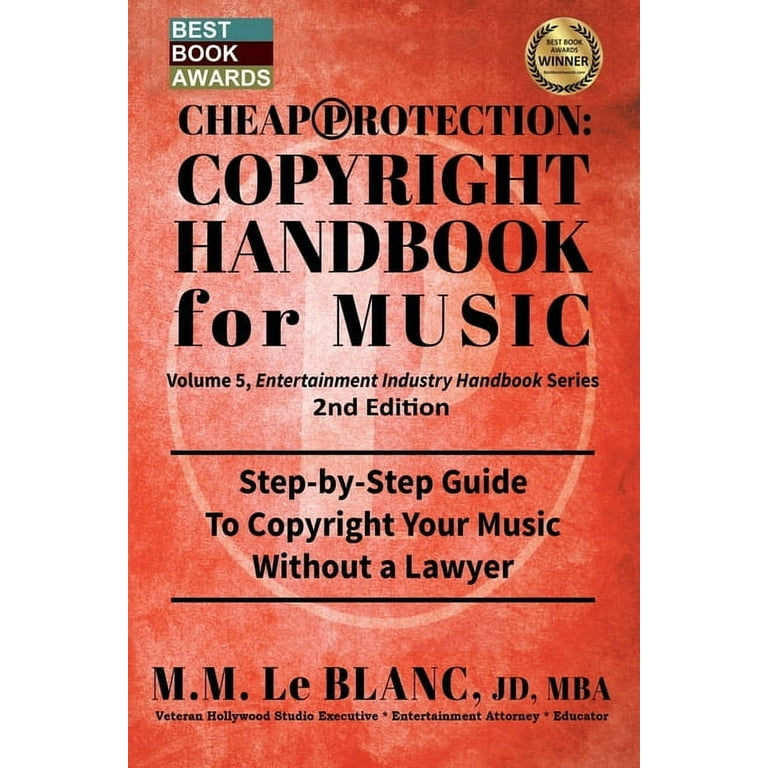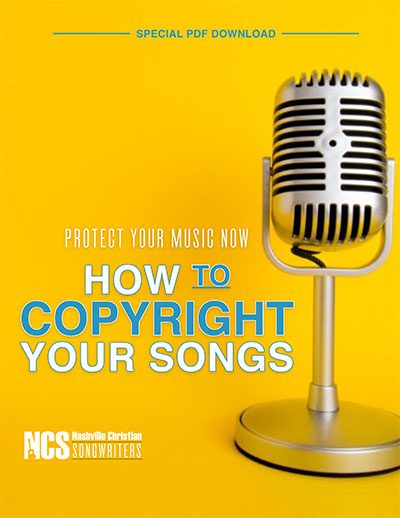To get your music copyrighted, submit your work through the official copyright office website. Ensure all required information is correct and pay the registration fee.
Safeguard your music with legal protection against unauthorized use. Protecting your music through copyright provides essential legal rights and protection for your creative work. By registering for copyright, you establish a public record of your ownership and deter others from using your music without permission.
This process grants you exclusive rights to reproduce, distribute, and perform your music, giving you control over its use and potential revenue streams. Adhering to copyright laws is crucial for ensuring that your musical creations are safeguarded and respected in the industry.
The Importance Of Copyrights For Musicians
As a musician, understanding the importance of copyrights is crucial. Protecting your intellectual property is key in the music industry.
Protecting Your Intellectual Property
Copyrights safeguard your original music compositions and ensure you retain ownership of your work.
Understanding Copyright Laws
Educate yourself on copyright laws to know your rights and prevent unauthorized use of your music.
Getting Started With Copyrighting Your Music
Start protecting your music by copyrighting it. Follow these steps to secure your intellectual property and ensure that you receive proper recognition and compensation for your work. With easy-to-follow procedures, you can safeguard your music and establish your rights as a creator.
Understanding What Can Be Copyrighted
In the realm of music, original compositions, lyrics, sound recordings, and musical arrangements can be copyrighted.The Process Of Registering Your Copyright
The process involves filling out an application with the copyright office, paying a fee, and submitting copies of your work. As an artist, it’s crucial to protect your creations by securing copyright for your music.Benefits Of Music Copyrights
Music copyrights provide numerous benefits to creators and artists, offering legal protection and the ability to earn royalty and licensing fees.
Legal Protection
Obtaining a music copyright provides legal protection against unauthorized use or reproduction of your work. This protection ensures that you have the exclusive right to distribute, perform, and reproduce your music. Copyrights also allow you to take legal action against anyone who infringes on your rights, safeguarding your intellectual property.
Earning Royalties And Licensing Fees
Music copyrights enable you to earn royalties, granting you compensation each time your music is used or performed. Through licensing agreements, you can generate additional income by allowing others to use your music in various ways, such as in films, commercials, or on streaming platforms.

Credit: www.walmart.com
Challenges And Misconceptions
Navigating music copyright can pose challenges and misconceptions for artists. It’s crucial to register your work promptly to protect your creative rights. Understanding the process and seeking legal guidance can help you secure your music copyright effectively.
Common Misunderstandings
When it comes to copyrighting your music, there are several common misunderstandings that artists often have. It’s important to clear these misconceptions to ensure you protect your creative work effectively.
- Registering with a performing rights organization (PRO) is enough: Many artists mistakenly believe that registering their music with a PRO automatically grants them copyright protection. While registering with a PRO is important for royalty collection, it does not provide legal proof of ownership.
- Publishing on social media is sufficient proof: Some musicians think that by sharing their music on platforms like YouTube or SoundCloud, they automatically gain copyright protection. However, it is crucial to understand that these platforms do not offer legal protection, and someone can easily steal your work without consequences.
- “Poor man’s copyright” is a reliable method: The notion of sending a copy of your music to yourself via registered mail and keeping it unopened, commonly known as the “poor man’s copyright,” is a popular misconception. This method holds no legal weight and will not hold up in court as evidence of ownership.
Dealing With Copyright Infringement
While preventing copyright infringement is ideal, it’s essential to know how to handle situations when infringement does occur. Here are some steps to take if you discover unauthorized use of your music:
- Gather evidence: Collect as much evidence as possible to substantiate your claim of infringement. This can include date-stamped files, communication records, or any other documentation that proves your ownership of the music.
- Consult an attorney: Seek legal advice from an experienced intellectual property attorney who specializes in music copyright. They can guide you through the necessary steps for filing a lawsuit, sending cease and desist letters, or negotiating settlements.
- File a DMCA takedown notice: If your music is being used online without permission, you can submit a Digital Millennium Copyright Act (DMCA) takedown notice. This process allows you to request the removal of infringing content from websites or platforms.
Understanding the challenges and misconceptions surrounding music copyright is crucial for any artist. By debunking common misunderstandings and knowing how to deal with infringement, you can safeguard your creative work and ensure your rights are protected.
Tips For Safeguarding Your Music
When it comes to safeguarding your music, taking the necessary steps to protect your creations is crucial. One of the most effective ways to do so is by copyrighting your music, which grants you exclusive rights to its distribution, reproduction, and public performance. In this post, we will explore some essential tips for safeguarding your music, including documenting your creations and seeking legal advice.
Documenting Your Creations
Documenting your music creations is a crucial step in ensuring copyright protection. One of the simplest ways to document your music is by keeping a detailed record of each work you create. This record should include the song title, lyrics, score, and any other relevant details. Saving digital copies of your compositions is also highly recommended, as it provides additional evidence of your ownership.
In addition to documenting your creations, it is advisable to establish a clear timeline of your work. This can be done by sending yourself a registered letter containing the physical or digital copies of your music. The date of the postmark will serve as proof of the creation date, and this can be invaluable if you ever need to defend your copyright in court.
Seeking Legal Advice
While documenting your music provides some level of protection, seeking legal advice is a crucial step to fully safeguard your work. Consulting with a qualified intellectual property lawyer who specializes in copyright law can help ensure that all the necessary legal requirements are met. A legal professional can guide you through the process of copyright registration, assist with drafting relevant agreements, and provide valuable advice on how to protect your rights.
Additionally, a lawyer can provide guidance on licensing options to consider, helping you navigate the complex world of music rights and maximize your potential earnings. By seeking legal advice, you are taking proactive steps to protect your music and ensuring that you have the necessary legal foundation to enforce your rights if needed.
In Conclusion
By following these tips for safeguarding your music, you can protect your creative work and establish your rights as a music creator. Documenting your creations and seeking legal advice are essential steps in securing copyright protection and asserting your ownership. Remember, it’s always better to be proactive and take the necessary precautions to safeguard your music than to face potential legal complications in the future.

Credit: www.copyright.gov

Credit: www.nashvillechristiansongwriters.com
Frequently Asked Questions For How To Get Your Music Copyrighted
How Much Does It Cost To Copyright Your Song?
To copyright your song, the cost typically ranges from $35 to $55 per registration with the U. S. Copyright Office.
How Can I Copyright My Music For Free?
You can copyright your music for free by registering with the U. S. Copyright Office online. Create an account, complete the application, and submit your music. Make sure your work meets the eligibility criteria and is original. Keep in mind that the process may take some time.
How Do You Get Copyrighted For A Song?
To copyright a song, follow these steps: 1. Create original music. 2. Write down the lyrics and melody. 3. Register your song with the U. S. Copyright Office, or your country’s equivalent. 4. Pay the required fee and submit the necessary paperwork.
5. Receive your copyright certificate.
Does Cd Baby Copyright Your Music?
No, CD Baby does not copyright your music. You retain all the rights to your music when you use their services.
Conclusion
Understanding the process of copyrighting your music is crucial for protecting your work. By following the necessary steps and filing the appropriate paperwork, you can safeguard your creative efforts and ensure that you receive the credit and compensation you deserve.
With these insights, you can confidently pursue copyrighting for your music.